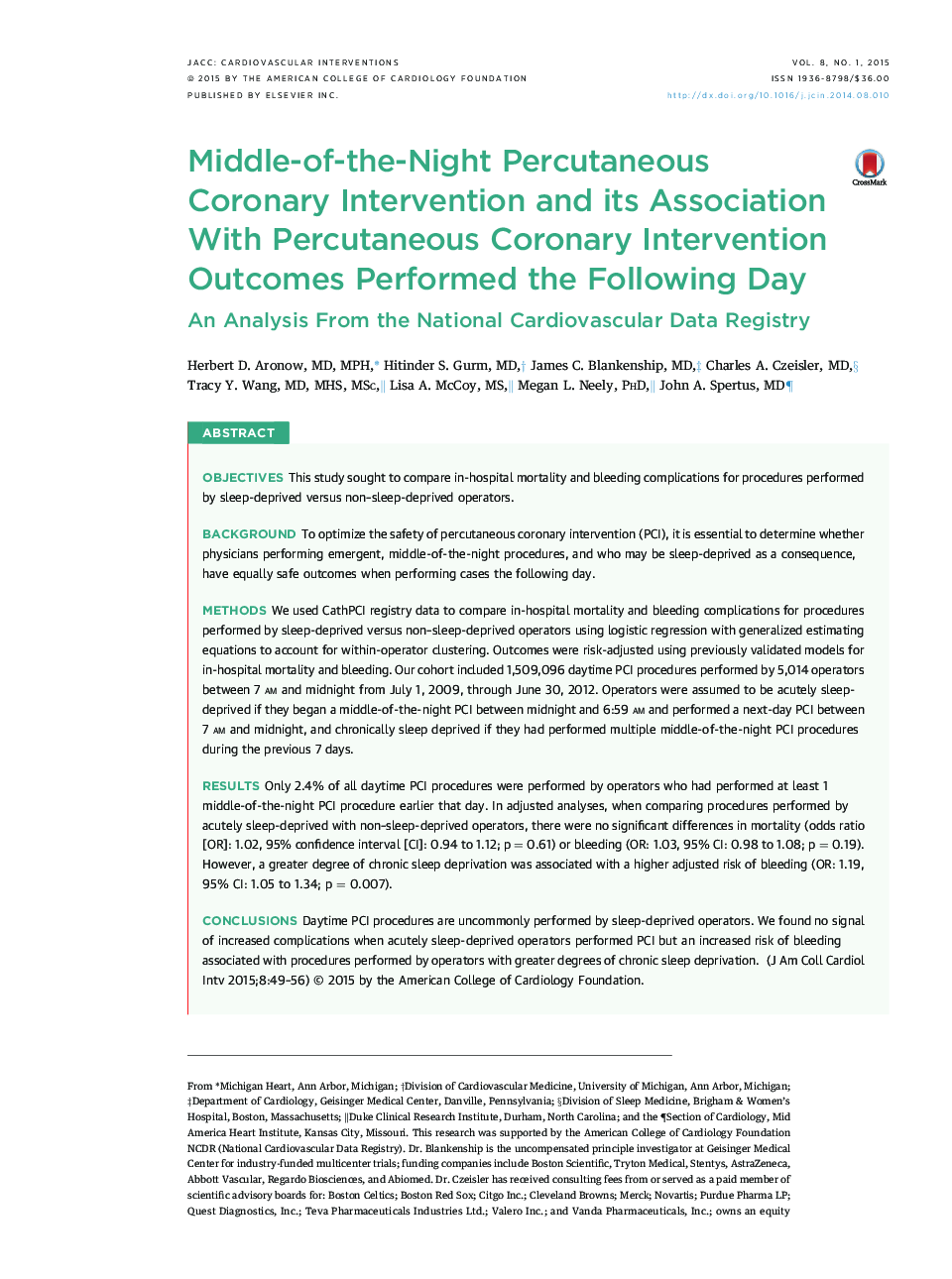| کد مقاله | کد نشریه | سال انتشار | مقاله انگلیسی | نسخه تمام متن |
|---|---|---|---|---|
| 5980843 | 1177017 | 2015 | 8 صفحه PDF | دانلود رایگان |
ObjectivesThis study sought to compare in-hospital mortality and bleeding complications for procedures performed by sleep-deprived versus non-sleep-deprived operators.BackgroundTo optimize the safety of percutaneous coronary intervention (PCI), it is essential to determine whether physicians performing emergent, middle-of-the-night procedures, and who may be sleep-deprived as a consequence, have equally safe outcomes when performing cases the following day.MethodsWe used CathPCI registry data to compare in-hospital mortality and bleeding complications for procedures performed by sleep-deprived versus non-sleep-deprived operators using logistic regression with generalized estimating equations to account for within-operator clustering. Outcomes were risk-adjusted using previously validated models for in-hospital mortality and bleeding. Our cohort included 1,509,096 daytime PCI procedures performed by 5,014 operators between 7 am and midnight from July 1, 2009, through June 30, 2012. Operators were assumed to be acutely sleep-deprived if they began a middle-of-the-night PCI between midnight and 6:59 am and performed a next-day PCI between 7 am and midnight, and chronically sleep deprived if they had performed multiple middle-of-the-night PCI procedures during the previous 7 days.ResultsOnly 2.4% of all daytime PCI procedures were performed by operators who had performed at least 1 middle-of-the-night PCI procedure earlier that day. In adjusted analyses, when comparing procedures performed by acutely sleep-deprived with non-sleep-deprived operators, there were no significant differences in mortality (odds ratio [OR]: 1.02, 95% confidence interval [CI]: 0.94 to 1.12; p = 0.61) or bleeding (OR: 1.03, 95% CI: 0.98 to 1.08; p = 0.19). However, a greater degree of chronic sleep deprivation was associated with a higher adjusted risk of bleeding (OR: 1.19, 95% CI: 1.05 to 1.34; p = 0.007).ConclusionsDaytime PCI procedures are uncommonly performed by sleep-deprived operators. We found no signal of increased complications when acutely sleep-deprived operators performed PCI but an increased risk of bleeding associated with procedures performed by operators with greater degrees of chronic sleep deprivation.
Journal: JACC: Cardiovascular Interventions - Volume 8, Issue 1, Part A, January 2015, Pages 49-56
